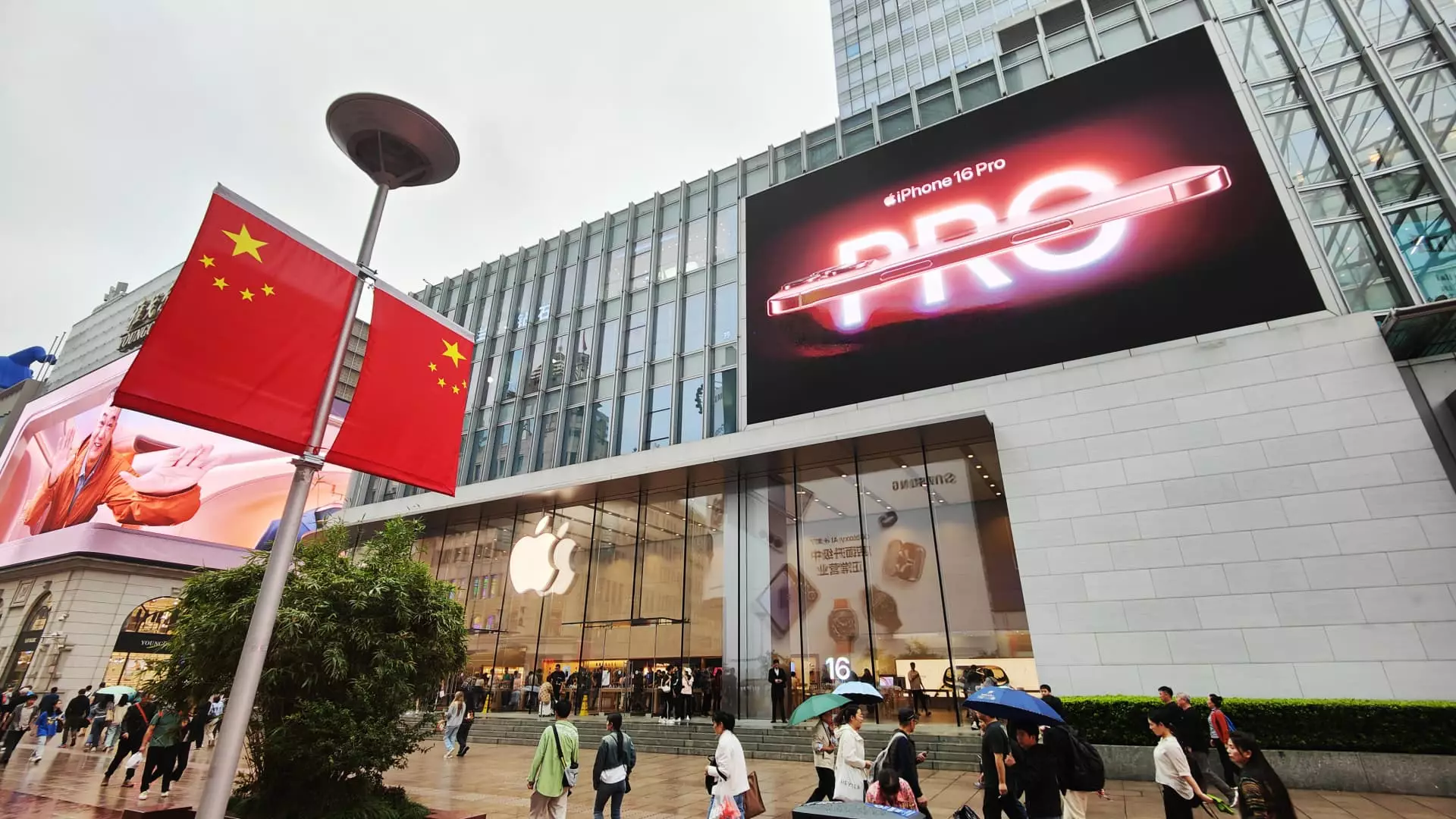The latest data from the China Academy of Information and Communications Technology (CAICT) reveals a significant downturn in the sales of foreign mobile phone brands in China. During November 2023, shipments fell dramatically to 3.04 million units, reflecting a striking decrease of 47.4% compared to the previous year and a staggering 51% dip since October 2023. This trend highlights not just the challenges faced by foreign brands, but especially illuminates the intense competition within the Chinese smartphone market.
While the statistics do not break down individual brand performance, it is patently clear that Apple remains at the forefront of foreign mobile phone sales in China. However, the brand’s stronghold is increasingly endangered by the rising influence of domestic manufacturers. The resurgence of Huawei stands out prominently; the company, once beleaguered by U.S. sanctions, has launched various high-end smartphones that have garnered considerable attention from local consumers. These developments undermine Apple’s longstanding supremacy, pointing to a shifting landscape where domestic players are reclaiming market share.
Huawei’s impressive growth trajectory can be attributed in part to its ability to innovate swiftly and deliver products that resonate with the needs of Chinese consumers. The latest offerings from the company have outpaced Apple’s in recent quarters. According to data from Research firm IDC, Huawei’s market performance surpassed that of Apple, suggesting a marked shift in consumer preferences as domestic brands gain traction. This competitive edge underscores a critical challenge for Apple, compelling the tech giant to rethink its strategies for the Chinese market.
In a move to reignite interest in its flagship iPhone 16 series, Apple has introduced new artificial intelligence features through its Apple Intelligence software. However, the availability of these features in China is hindered by complex local regulations surrounding AI technology. In contrast, local competitors have already rolled out their own AI functionalities, providing them with a tangible advantage over Apple. The failure to adequately localize its offerings threatens Apple’s ability to connect with consumers who are increasingly valuing AI-enabled features in their mobile devices.
In an effort to stem declining sales and rekindle consumer passion for the iPhone, Apple CEO Tim Cook has proactively visited China several times in the past year. These visits aim to fortify partnerships and explore opportunities to collaborate with local firms on AI developments. Additionally, Apple has announced discount promotions for the iPhone 16 in conjunction with the Lunar New Year, reflecting a tactical approach to stimulate consumer demand amid challenging conditions.
As the foreign smartphone landscape in China experiences pronounced challenges, Apple’s dominance appears increasingly precarious. The company’s struggles amid rising competition, regulatory hurdles, and changing consumer preferences highlight a crucial moment in the tech giant’s history. Without decisive action, including more localized strategies and effective engagement with the unique demands of Chinese consumers, Apple may find itself grappling with declining market share in this essential territory for years to come.

